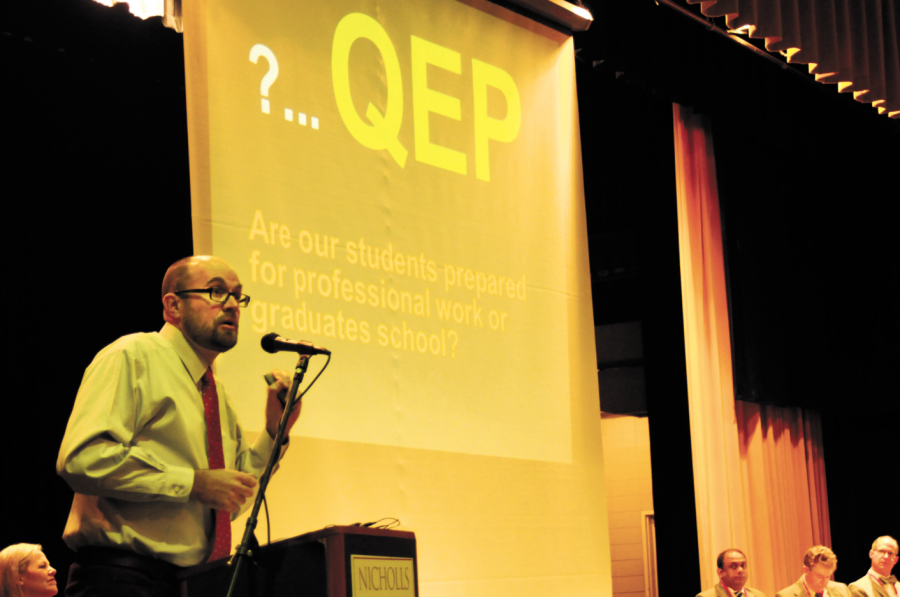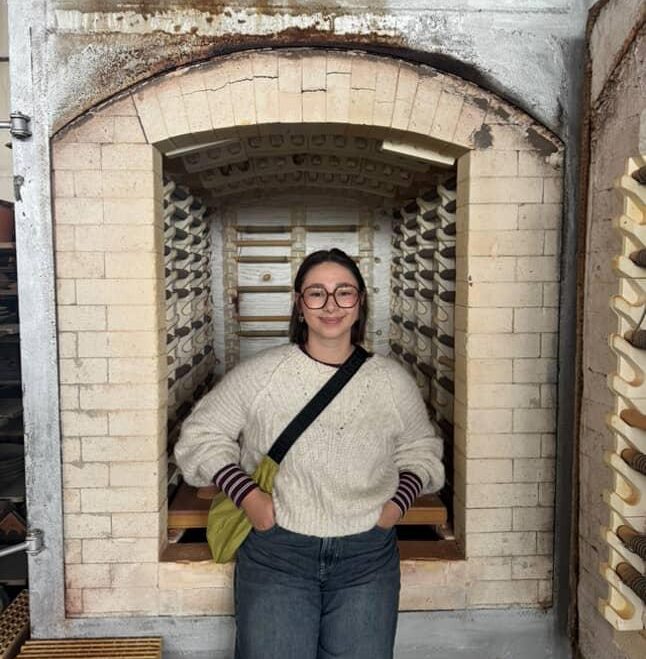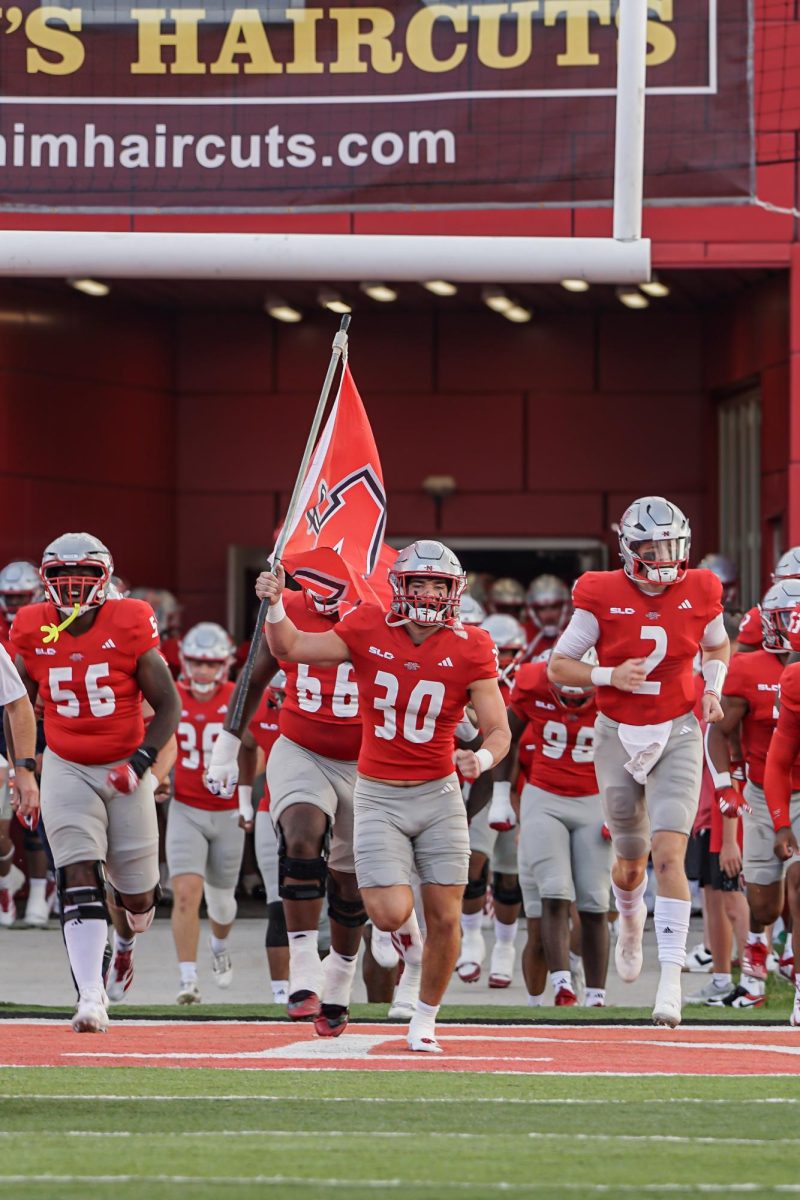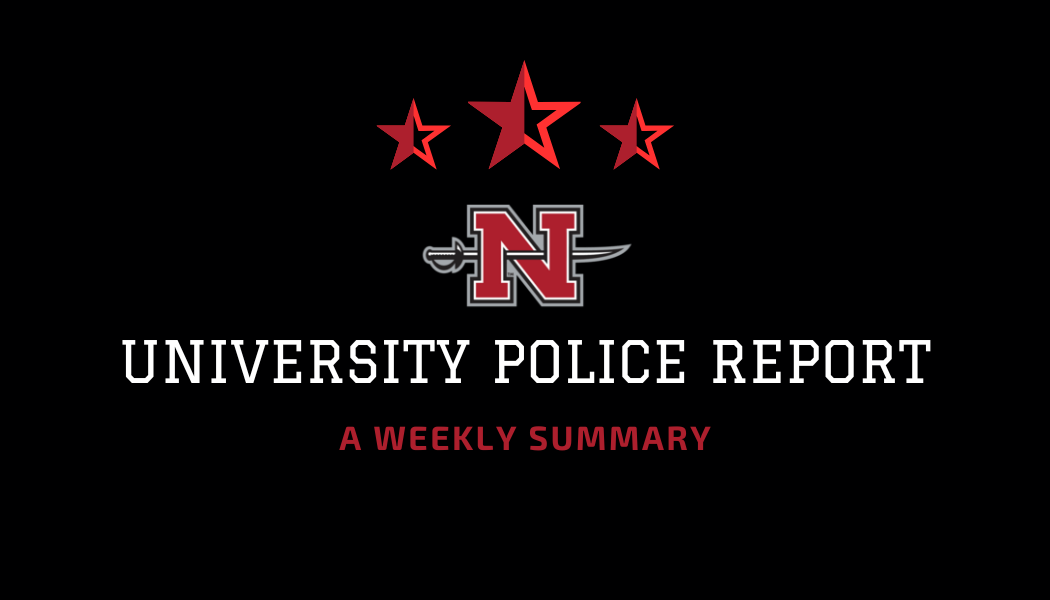The Quality Enhancement Plan (QEP) is a proposal put together by a 15-member committee to enhance student learning at Nicholls.
The Southern Association of Colleges and Schools (SACS), assesses Nicholls every ten years to see how the University performed since their last visit by checking different areas such as finance, curriculum and graduation rates. SACS also checks the QEP, making sure the committee is coming up with a new plan to improve student learning for the future. According to art professor Ross Jahnke, the chair of the committee, SACS spends most of their time looking over the QEP.
When SACS assesses Nicholls in the spring of 2016, they will be looking for the new plan that will help students learn in a more efficient way.
“We take the student body to the doctor for a complete checkup and we identify health problems with the student body,” said Jahnke. “We look at student learning and the student body as a whole and then we develop a plan to improve the learning health of the student body.”
The main idea of the QEP is to touch and improve every student, but according to Jahnke, not every student may be affected by the QEP plan.
The first plan that the QEP committee came up with to help students was the Center for Advancing Faculty Engagement.
The Center for Advancing Faculty Engagement (CAFE) was put into place to be responsible for organizing the various faculty engagement initiatives of the QEP. The plan would regularly offer workshops focused on general education practices, critical thinking and writing and infusion of technology into the classroom.
The QEP’s main goal in starting the CAFE was to encourage a spirit of collegiality, train faculty in best practices, facilitate professional growth, mentor new faculty and promote campus wide initiatives.
“The main reason QEP is put into effect is to only upgrade student learning and that’s all we are in charge of. We cannot give faculty raises,” said Jahnke.
The committee came up with five ideas to help the students: transitioning, global and cultural awareness, media literacy, quantitative literacy and advancing technology.
Transitioning would be in place to help student’s transition from the college life to the work environment. Nicholls may implement more internships to help students get the feeling of working in their career before they venture into the real world.
Global and cultural awareness is meant to improve the learning for foreign students and improve students’ awareness of cultures outside of the United States.
The committee would put media literacy into effect to improve the understanding and the use of social media and the media used in news.
Quantitative literacy would include math skills across curricula, which could give students a better understanding of math skills. Even though math would be used in non-math courses, the theory would be for most students to get a better understanding of math with real world problems.
The advancing technology aspect of the plan could improve students’ access with contemporary software around campus.
Jahnke said that these five ideas may not be picked when SACS reassesses in 2016.
Enhancing Education
Nicholls prepares for quality enhancement proposal
Javier Davison
•
February 6, 2014
0
More to Discover














